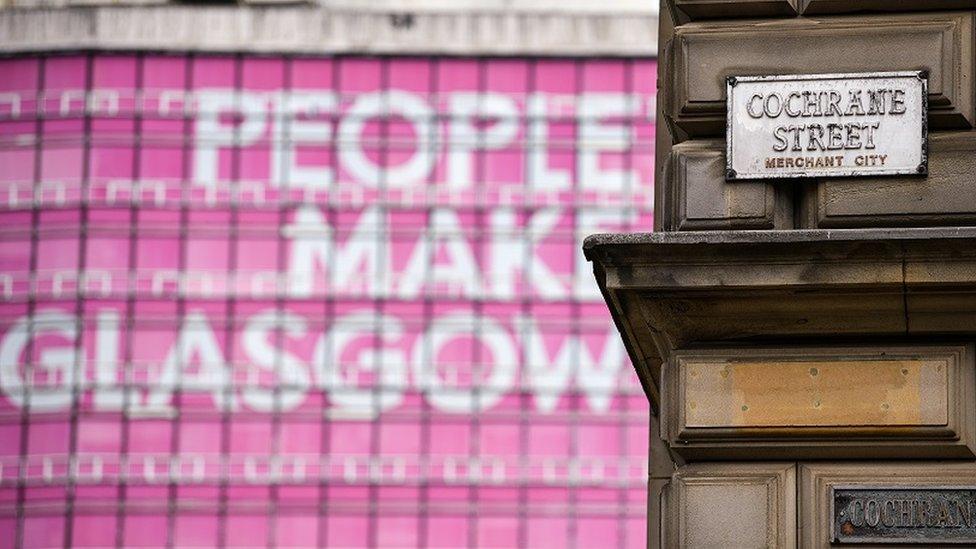Scotland's slavery role cannot be glossed over, Lord Carloway says
- Published
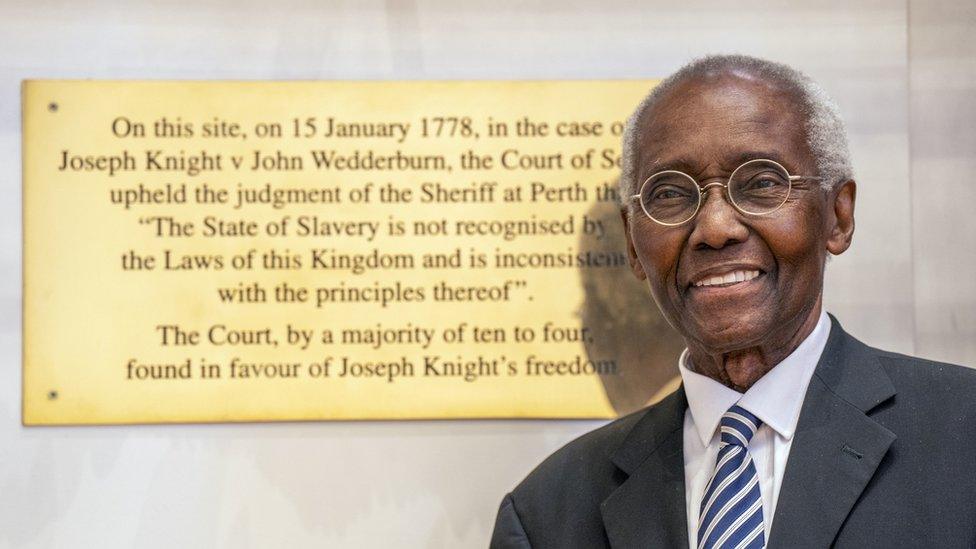
Sir Geoff Palmer, who recently carried out a review of Edinburgh's historic links with slavery, welcomed the plaque
Scotland's complicity with slavery cannot be "glossed over", Scotland's most senior judge has said.
Unveiling a plaque in Edinburgh, Lord Carloway said it was important to mark the "true extent" of Scotland's historic role in the slave trade.
The plaque marked a 1778 legal judgement that established that Scots law would not support slavery.
The plaque was praised by academic Sir Geoff Palmer who has reviewed the capital's links with the slave trade.
Lord Carloway, the lord president, unveiled the plaque at the Court of Session, to mark the judgment in the case of Knight v Wedderburn.
Joseph Knight was purchased as a slave by John Wedderburn in Jamaica and brought to Scotland to serve in his household.
When he tried to leave the slaveowner's service to go and live with the woman he had married, the wealthy landowner had him arrested.
However, Mr Knight launched a years-long court battle with the aristocrat which ended in his emancipation, while a majority of judges ruled that Scots law could not uphold the institution of slavery.
'Collective amnesia'
In a speech at the court's Parliament Hall, Lord Carloway said much had already been written about Scotland's "collective amnesia" when it came to slavery.
He quoted one of the judges in Knight v Wedderburn, who said: "We sit here to enforce right, not to enforce wrong."
Lord Carloway said: "Despite those rhetorical flourishes, to imply that Scotland's hands were clean, is to say the least inaccurate."
He said Scotland was involved in the transatlantic slave trade and African people had been brought to Scotland long before the Act of Union in 1707.
He said there were cases of privateers bringing "gifts" of captured slaves to Scottish royal courts.
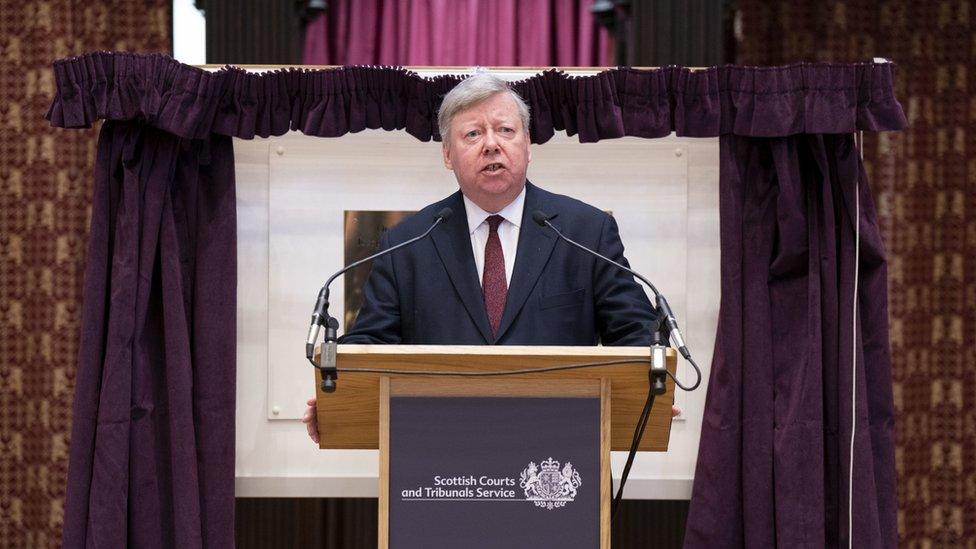
Lord Carloway unveiled a plaque at the Court of Session
Lord Carloway also noted that those working as colliers and salters were held in bondage in Scotland - their freedom came in the years following Knight v Wedderburn.
The Lord President said: "Against that background, Scotland's description as a land of liberty in 1778 may fairly be described as somewhat of a veneer.
"The laws by which Mr Knight had been enslaved may have been Jamaican.
"But Scotland's complicity in the slave trade at that time cannot be glossed over."
Lord Carloway commissioned the plaque after receiving a letter from Sir Geoff, who recently carried out a review of Edinburgh's historic links with slavery and how they could be marked.
Sir Geoff, who is Chancellor of Heriot-Watt University, said other institutions should also reflect on their past links with slavery.
He said the death of George Floyd had sparked interest in black history, adding: "This is a powerful story from that history, just like the Floyd death is a powerful incident in our humanity.
"I was so pleased when we discussed it with the powers that be in the court and decided that a plaque would be made."
Sir Geoff's views on Henry Dundas, the influential 18th Century politician blamed for delaying the abolition of slavery, have sparked disagreement from some historians who say his legacy is more complex.
The Heriot-Watt chancellor backed the installation of a plaque which linked Dundas to slavery, saying: "If somebody did something that is wrong, it should be remembered."
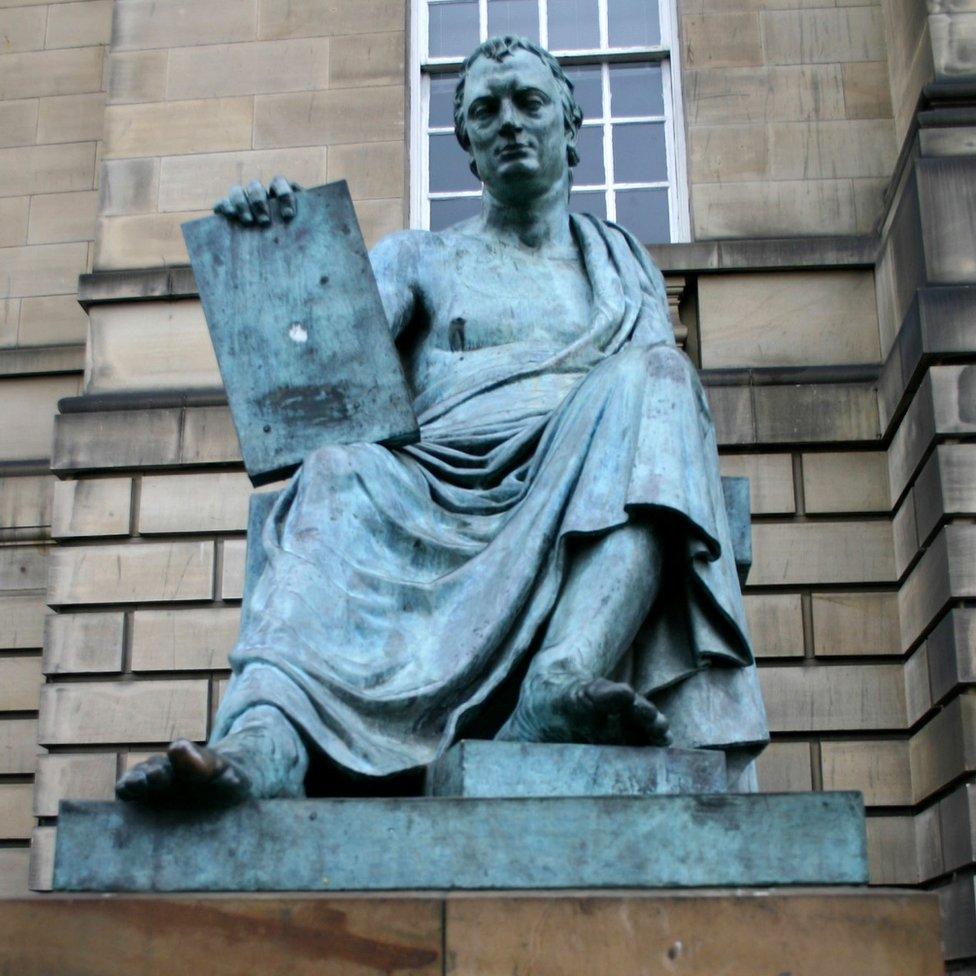
Philosopher David Hume was involved in the slave trade and said all black people were inferior
However, Sir Geoff's review did not recommend removing statues and building names associated with Viscount Dundas.
He said: "If you remove the evidence, you remove the deed."
Sir Geoff said that although Dundas argued in Joseph Knight's favour, the viscount acknowledged that black people were "doomed" in Jamaica and still sought to delay their freedom.
The academic also called on Scottish universities to reflect on the work of philosopher David Hume.
Hume said black people were inferior and his thinking was reflected in other philosophers' work.
Sir Geoff said: "They should start teaching that, all institutions that teach Hume."
He added: "I think all institutions should try and speak the truth about our one humanity, because we are one humanity, nothing less."
Related topics
- Published27 October 2022

- Published30 March 2022
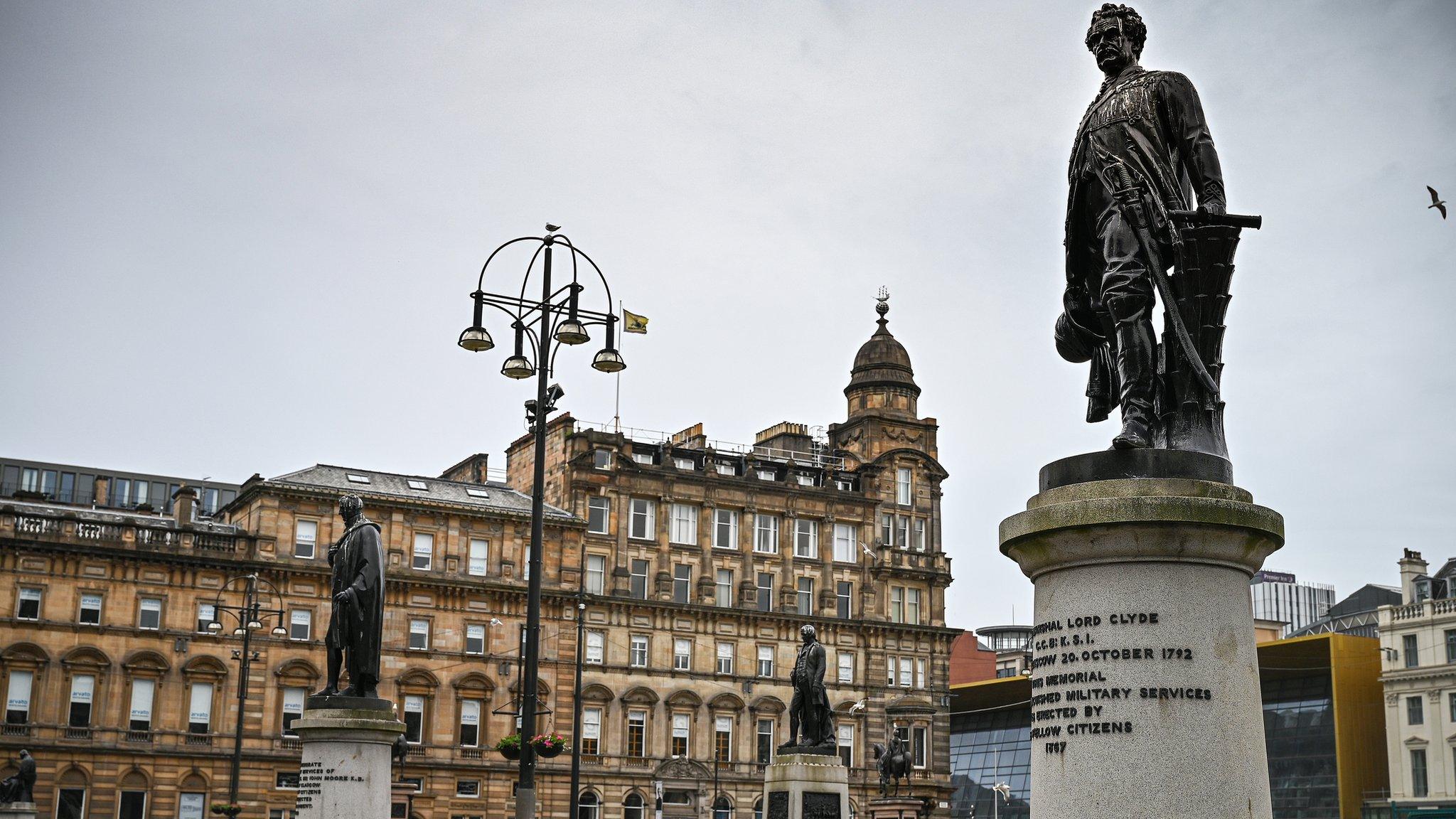
- Published11 June 2020
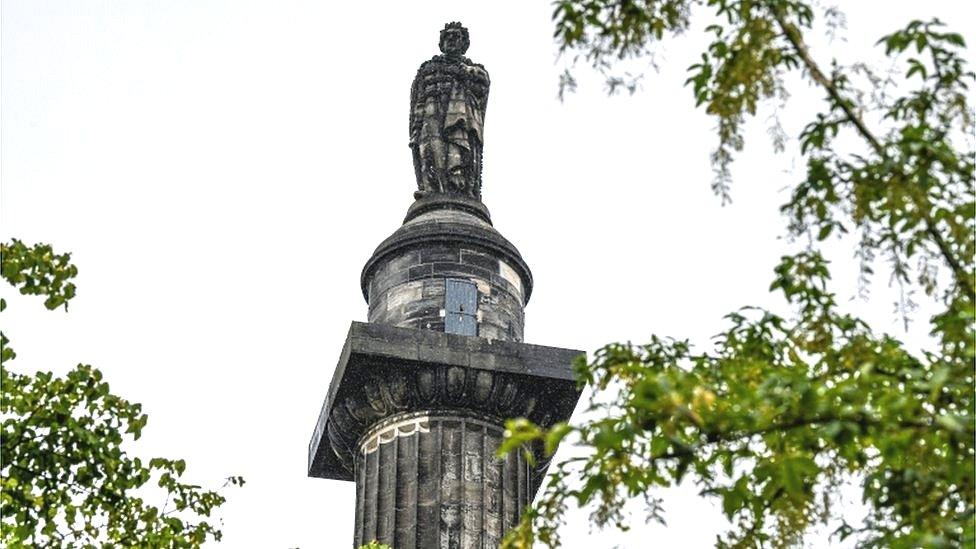
- Published9 June 2020
